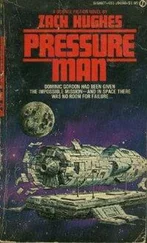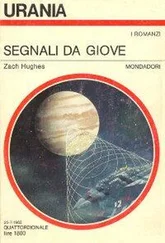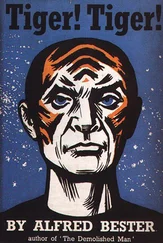Zach Hughes - Tiger in the Stars
Здесь есть возможность читать онлайн «Zach Hughes - Tiger in the Stars» весь текст электронной книги совершенно бесплатно (целиком полную версию без сокращений). В некоторых случаях можно слушать аудио, скачать через торрент в формате fb2 и присутствует краткое содержание. Жанр: Фэнтези, на английском языке. Описание произведения, (предисловие) а так же отзывы посетителей доступны на портале библиотеки ЛибКат.
- Название:Tiger in the Stars
- Автор:
- Жанр:
- Год:неизвестен
- ISBN:нет данных
- Рейтинг книги:3 / 5. Голосов: 1
-
Избранное:Добавить в избранное
- Отзывы:
-
Ваша оценка:
- 60
- 1
- 2
- 3
- 4
- 5
Tiger in the Stars: краткое содержание, описание и аннотация
Предлагаем к чтению аннотацию, описание, краткое содержание или предисловие (зависит от того, что написал сам автор книги «Tiger in the Stars»). Если вы не нашли необходимую информацию о книге — напишите в комментариях, мы постараемся отыскать её.
Tiger in the Stars — читать онлайн бесплатно полную книгу (весь текст) целиком
Ниже представлен текст книги, разбитый по страницам. Система сохранения места последней прочитанной страницы, позволяет с удобством читать онлайн бесплатно книгу «Tiger in the Stars», без необходимости каждый раз заново искать на чём Вы остановились. Поставьте закладку, и сможете в любой момент перейти на страницу, на которой закончили чтение.
Интервал:
Закладка:
danced like a perfect gentleman, holding her politely close, thanking her at the end of each dance. It was Plank with whom she walked, in the early hours of a lovely spring morning, and talked of her ambitions. Plank shared her dreams of the stars. Plank was a good listener. Throughout the long evening and night, he did not even attempt to kiss her. He managed to return to the academy for her graduation dance and this time he wore service blue. He had been to Mars. He talked about it and about space with an excitement and an intensity that moved her. Later, when he slowly drew her into his arms, giving her every opportunity to say no, he moved her in another way, in a way she'd never been moved before. And when he called her his love she melted against him and let her kiss speak for her. It was a strange courtship. When he was away, she longed for him, wanted to see those dark eyes under his bushy eyebrows, wanted to feel the touch of his hand. When she was in space, off duty, she could remember every detail of his face, could repeat every word he'd ever said to her. She was, indeed, a woman in love. They talked about being assigned to the same colonizer. Plank chose his way, chose to work the Mars jobs and go into free enterprise, begging her to resign her commission and join him, painting nice pictures about the two of them spending months of time in space together. But she had, at last, reached her goal and she was totally incapable of tossing over a lifetime of work (it seemed to be a lifetime then, although, with the life expectancy of her time, she was still very young), not even to marry the man she loved. They saw each other at long intervals and tried to work out their differences. Plank made a run to the Centauri systems, and her feelings did not change during the years of separation. He fared well on the trip and, once again, pleaded with her to leave the service and join him. She was tempted. But she was due for promotion. «My career means as much to me as your work means to you,» she would tell him. «There is still time for us.» So it was, when she learned that Plank had disappeared in deep space,
that she felt a mixture of emotions. First that spontaneous feeling of relief.
There would be no more conflict. Then guilt, for it was after all Plank, her man, who was missing. Then more quick guilt for not having given in to him. If she had married him she would have been with him on the Pride. Then she would at least know. But now her emotions were in conflict as she remembered him, felt in her mind the strength of his arms, the tenderness of his kiss, and she began to be angry. Something would have to be done. She didn't know exactly what, but she would see to it that something was. CHAPTER THREE Anyone, Plank thought, can recite the physical statistics of the galaxy.
It is simple to say that our galaxy is a highly flattened discoidal system of stars with a radius in the order of 2,000 parsecs. Elementary school
children could tell you that a parsec equals 3.26 light-years or 3.1 X 10 to the 13th power, kilometers. Most Earthlings older than two had seen a model of the galaxy, a slowly rotating wheel with a white core of dense stars, which have a central bulge when viewed head on. Seen from the top, the model shows the effects of the slow rotation. Groupings of stars trail into spiraling arms. On the model, Earth is an insignificant speck toward the inner end of the Orion arm, 30,000 parsecs outward from the center. The Orion Arm is 400 parsecs wide. Four hundred parsecs equal 1,304 light-years. Compared with the galactic core, the Orion Arm is thinly populated. Distances between stars are vast. Yet Plank, looking into the arm with the eyes of his starship body, saw a number of stars which, on occasion, awed him. Glowing salt on a black platter. By the millions. And he was among them. He could place his position, roughly. He was, however, denied that overall view, as if seeing the galaxy as a model. He knew that he was in the area of the inner extension of the arm. He could position the galactic core to his right and take into account the known and distant star markers. He knew where he was. He was in the ball park. But
it was a ball park of such vast dimensions that finding his way to first base
was, he had decided, going to be a long process of trial, search and failure. Still, it should have been simple. His mind contained the knowledge of the heavens as seen from both the Earth and the Centauri systems. He should have been able to relate those positions, zero in, find the characteristic glow of either Sol or the two Centauri stars and return home in one jump. He made the calculations again and again. Time after time the position was the relatively open areas of space outside the arm. He could only arrive at several conclusions. One, something had happened to his head. Something either accidental or deliberate to knock the sure knowledge of home from his brain. His present condition would have a bearing there. Some minute trauma resulting from his brain being taken from his body and being encapsulated as the driving force of a most impressive starship? Some deliberate alteration making it impossible for him to go home? Two, it was obvious that he had run afoul of some intelligence not from the old Earth. Earth science was not yet prepared to build a ship like the new Plank's Pride. Certainly a race capable of making Plank a starship was capable of making minute alterations in his head to prevent him from finding his way home. The question was, why? Why put him into a ship capable of leaping unlimited distances in an instant and then send him zigzagging down the Orion Arm toward Perseus, star-hopping, planet-checking. Plank knew that, for all practical purposes, he was immortal. Oh, he could die. If he were careless enough to dive into a star the ship would burn and he would no longer exist. But, as he discovered more and more about his new state, he realized that he was self-repairing, that nothing ever went wrong with the marvelous machinery anyway, and that he had nutrients to last 1,000 years. Time, then, was meaningless. It was inevitable that he would find home. He'd find it if it meant checking every star in the arm. He'd find it if it took 1,000 years. There were times when he questioned himself. Why was it so important that he find home. If he spent 100 years, Hara would be as old as his mother and would have, long since, forgotten him. If he found it in ten years, she'd be in her sixties, still a young woman, but what good would that do him, a blob of brain cells inside a casing of starship? His singleminded search was senseless. He had the capacity to explore the universe as no one of his race had ever explored. He drew his power from the stars themselves. He could
travel any distance in an instant, as long as the straight line route was free
of star bodies. In a few jumps he could be outside the galaxy, covering vast distance, shooting toward the globular clusters, the far galaxies, the remote extensions of the universe. It was as easy for him to travel intergalactic distances as to jump the few light-years between stars. But as he thought about it, a massive and heavy loneliness saddened him and he continued his star by star search, checking planets, finding a few life-zone worlds and duly recording their statistics and locations. In spite of everything, he was a man and he sought the company of man. He told himself that he would present himself as a gift to mankind, opening up the universe to them. He was deceptively simple in his workings, and he could be copied. In ten years, a fleet of starships could be flashing outward from Earth, solving the problems once and for all. And if it took him 500 years, well, the Earth would be there. Man had, at least, grown past the threat of self-extinction. He had not outgrown his urge to multiply, and he crowded every available corner of the Earth and tried, in slow, sublight ships, to transfer himself to other worlds. His population was limited by law but still crowded, straining the dwindling resources of the old planet. Hara would, in 500 years, be dead. That was a
Читать дальшеИнтервал:
Закладка:
Похожие книги на «Tiger in the Stars»
Представляем Вашему вниманию похожие книги на «Tiger in the Stars» списком для выбора. Мы отобрали схожую по названию и смыслу литературу в надежде предоставить читателям больше вариантов отыскать новые, интересные, ещё непрочитанные произведения.
Обсуждение, отзывы о книге «Tiger in the Stars» и просто собственные мнения читателей. Оставьте ваши комментарии, напишите, что Вы думаете о произведении, его смысле или главных героях. Укажите что конкретно понравилось, а что нет, и почему Вы так считаете.




